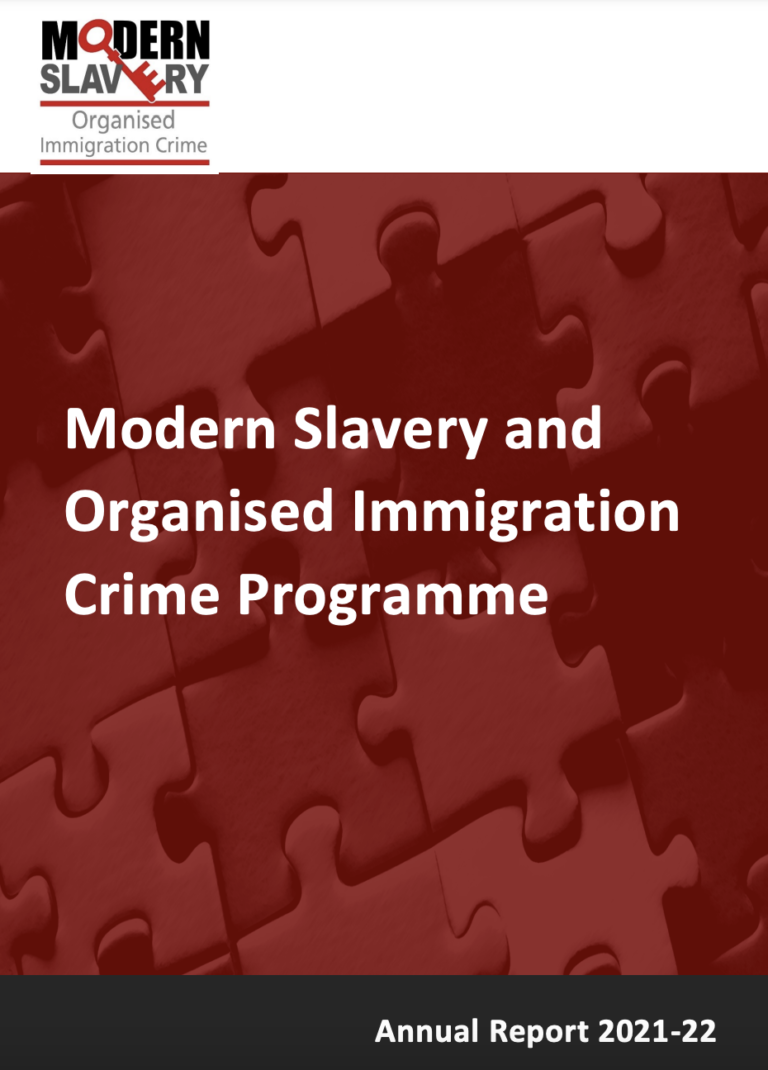The Modern Slavery and Organised Immigration Crime Programme continues to build on the work undertaken in previous years. In 2021-22 the programme continued to drive improvements in the identification of victims and improve Modern Slavery criminal justice outcomes. The Home Office agreed additional funding to support police forces’ response to Organised Immigration Crime.
Overview of the 2021-22 Programme
Modern Slavery: The focus of the Programme for 2021-22 was to embed good practice into business as usual across all forces. Additional funding was provided in the last quarter to give forces additional resources to prevent sexual exploitation.
Organised Immigration Crime: Increased Home Office funding to support police forces’ response to Organised Immigration Crime, allowed the Programme to grow the Operation Policing Team pilot from eight to fifteen forces in 2021-22. The Home Office provided total funding of £2,512,000 in 2021-22 to support forces to improve their response to Modern Slavery and Organised Immigration Crime.
Funding in 2022/23: The Home Office has agreed further funding of £2,523,000 for the Modern Slavery and Organised Immigration Crime Programme to be extended until 31 March 2023. This will enable the Programme to support Forces around the OIC Section 5 tasking, whilst consolidating work with Forces around improving their response to Modern Slavery investigations.

